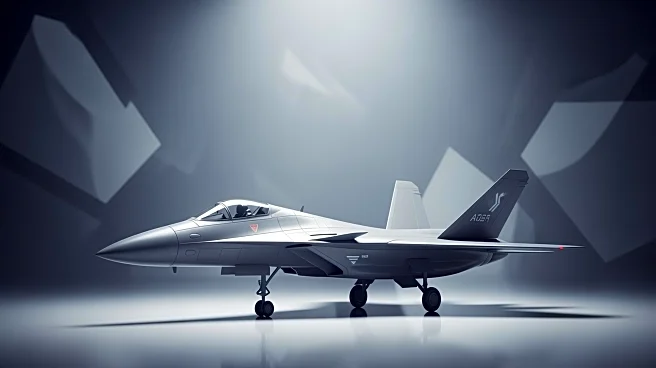What's Happening?
British Prime Minister Keir Starmer has announced a significant defense agreement with Turkey, under which Turkey will purchase 20 Eurofighter Typhoon combat jets. The deal, valued at approximately £8 billion, was signed during Starmer's visit to Ankara,
where he met with Turkish President Recep Tayyip Erdogan. This agreement is expected to secure 20,000 jobs and marks a deepening of defense ties between the two NATO allies. The Eurofighter Typhoon, a multirole fighter, is jointly produced by a consortium of Britain, Germany, Italy, and Spain. The deal aims to bolster Turkey's air defense capabilities amid regional tensions, particularly with Israel. The first batch of jets is anticipated to be delivered by 2030.
Why It's Important?
This defense deal is significant for several reasons. Economically, it promises to inject billions into the UK economy and sustain the Typhoon production lines, securing thousands of jobs. Politically, it strengthens NATO's eastern flank, with Turkey being a key player due to its strategic location and military capabilities. The agreement also reflects Turkey's efforts to modernize its air fleet, which currently relies heavily on U.S.-made F-16s. This move could alter regional power dynamics, especially in light of Turkey's concerns over Israeli airstrikes in neighboring countries. The deal underscores the importance of Turkey in NATO's strategy, particularly in the context of potential future stabilization efforts in postwar Ukraine.
What's Next?
The next steps involve the production and eventual delivery of the Eurofighter Typhoons to Turkey, with the first batch expected by 2030. Meanwhile, Turkey is also pursuing additional agreements to acquire used Typhoons from Qatar and Oman to meet immediate defense needs. The deal may prompt reactions from other NATO members and regional players, particularly those wary of Turkey's foreign policy. The agreement could also influence Turkey's ongoing negotiations with the U.S. regarding the acquisition of F-35s, as it seeks to further modernize its military capabilities.
Beyond the Headlines
The deal highlights the complex geopolitical landscape in which Turkey operates, balancing relations with Western allies while addressing regional security concerns. It also raises questions about the ethical implications of arms sales to countries with contentious foreign policies. The agreement may impact Turkey's relations with neighboring countries, such as Greece and Cyprus, and could influence its role in broader NATO strategies. Additionally, the deal reflects the ongoing evolution of defense industries in Europe, as countries seek to maintain technological and strategic advantages.















